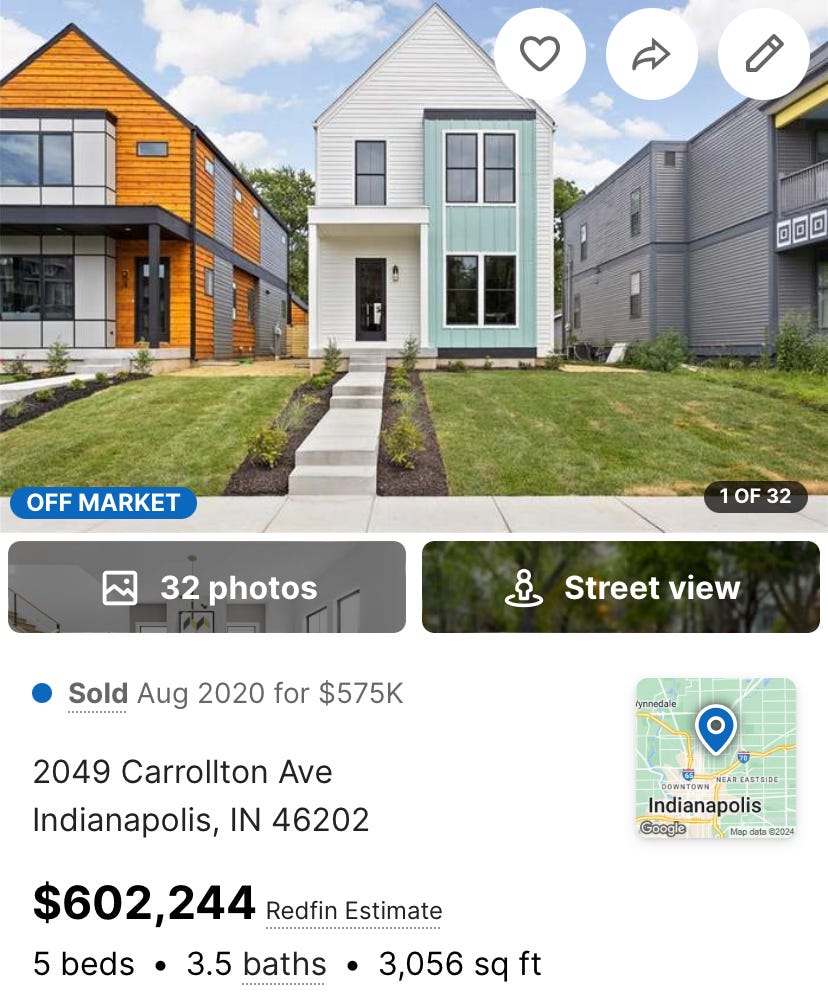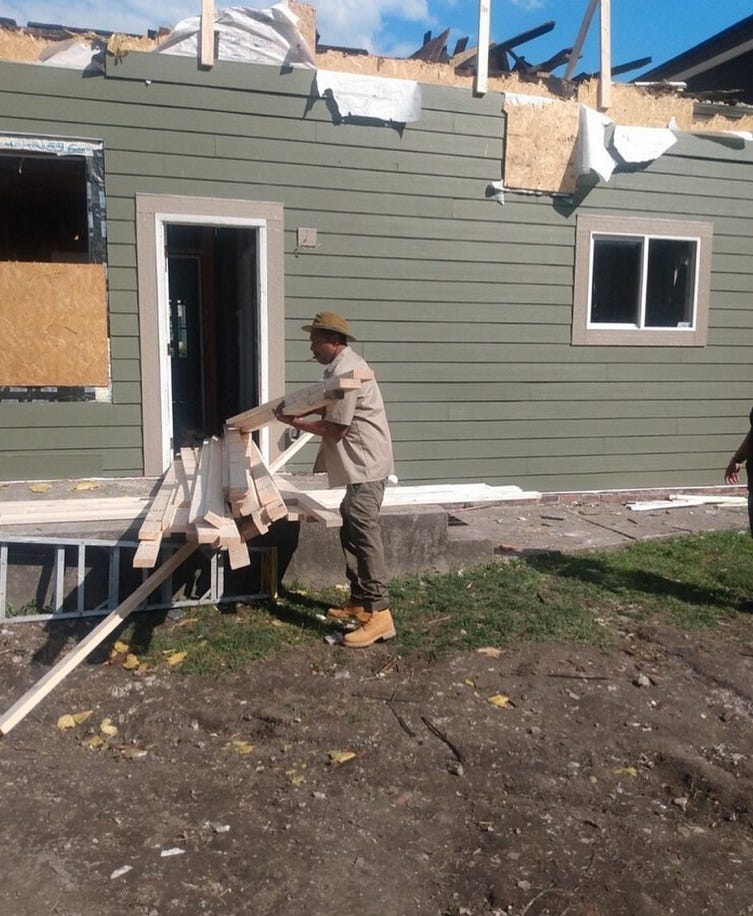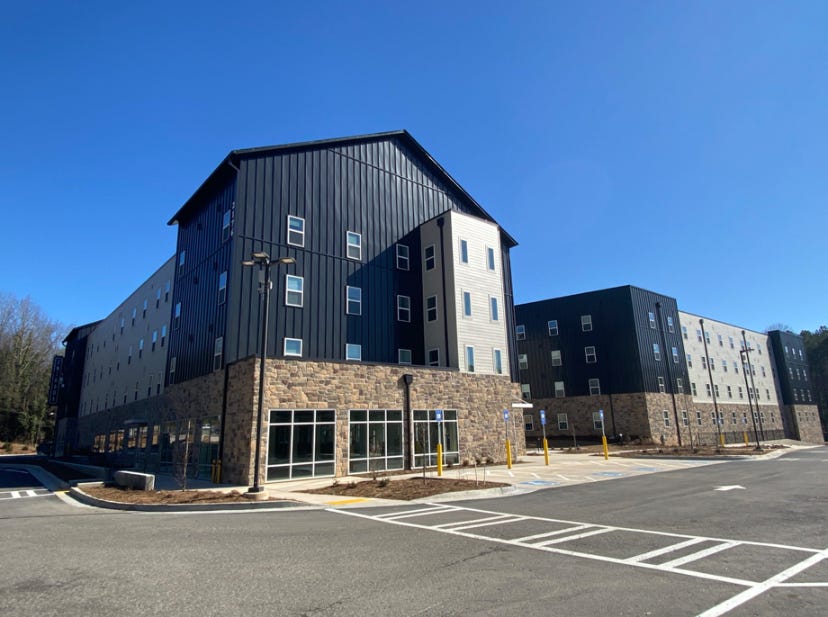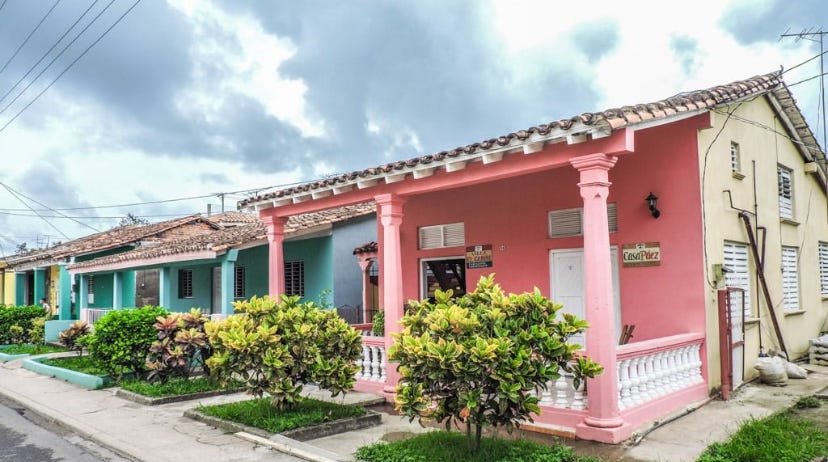The Unfortunate Truth behind Buying Back the Neighborhood
Why Black Capitalism WILL NOT Resolve the Black Community's Housing Crisis
One of the most frequent criticisms I’ve seen against Black celebrities and other members of the 1% is how they rarely give back to the communities, usually impoverished, in which they were raised. However, leading into the second decade of the 21st century we would see various athletes and entertainers invest into their hometowns via schools, community centers and affordable housing. These actions have garnered a lot of praise, assumed to be well-deserved given the type of investment they’ve made.
However, are these individual investments and displays of wealth building actually impactful for our community and collective wealth? Is this reliance on wealthy individuals our only option for a prosperous future? Throughout this article I will be reviewing two recent cases of black celebrity investments revered for addressing both the homeless issue and promoting wealth building through property. In the end, we will assess if the reverence is warranted.
Let’s begin with comedian Mike Epps’ new venture of buying back his neighborhood. This endeavor is a personal mission of Mike and his wife, Kyra Epps. The Epps couple would describe the motivating factor for their mission being the desire to build a better community for their family. These words and desires are altruistic, however they are only words. Based on observing the documentary produced by the Epps themselves and the news stories surrounding the couple's aspiration to buy back the block, I can only suffice that this undertaking is nothing more than a capitalist venture benefitting the upper class while presenting itself as an avenue for collective prosperity.
News broke early in November of 2023 that the comedian/actor would take on the task of renovating the homes of his childhood neighborhood that he purchased in the 90s and early 2000s. The stated purpose of these renovation projects was to ride the wave of gentrification and essentially beautify the neighborhood, himself, and ensure these homes would be inhabited by the usual victims of gentrification. So far, the couple has 6 properties under their ownership.
The Epps’ journey to buy back their block began with the purchase and renovation of the neighborhood fire house which the couple resides and refers to as “Big Blue”. The HGTV docu-series titled “Buying Back the Block” follows the renovation of two homes, the “Army House” next door to “Big Blue” and Epps’ grandmother’s home on the same block. In both episodes, you can see a genuine passion and excitement especially from Kyra Epps who is a designer and producer by trade. They loved what they were doing and took on the known and unforeseen challenges with thoughtful decisiveness to produce great finished projects at the end of each episode.
However, of the two renovations only one would be designated for renting, leaving two of the three modernized homes (thus far) completely within the Epps family. Although I was unable to locate the rental property listed on many home sites including Zillow, Redfin, Homes.com, Apartments.com, Trulia as well as affordable housing registries in Indiana, later into the episode following the “Army House” renovation we get a glimpse of the expected clientele to inhabit these properties.
The couple featured in this episode were of the ownership class, both local business owners of a successful hair care line called “Hello Beautiful Hair”. These are individuals who most certainly would not qualify for affordable housing. Through more investigation we learn the designer utilized in both episodes was also involved with three properties on the same street, all the homes sold at a final price above $500,000. Given the class of the expected renters and the heightened property value and tax post-renovation, it is safe to infer that these specific projects on Mike Epps’ block would exclude the under class.

Granted, the Epps family has aspiration to buy more property with hopes of creating more affordable housing options in Indianapolis, so even if it were the case that the homes featured in their tv show wouldn’t be designated legally as affordable housing we can still view this journey as a positive one for the betterment of the community. However, by analyzing another black celebrity’s investment into actual affordable housing we sadly learn that the betterment of the community is barely a priority if even an afterthought compared to who actually makes material gains from affordable housing developments.
Clifford Harris, better known as T.I., has recently been paraded on social media for his involvement in a new development of affordable housing units in Atlanta, GA. Named the “Intrada Westside”, this development would comprise over 160 units with 25 of them designated for unhoused teens and young adults.
This particular project would involve three entities, T.I., the city government, and a third party property development company called Vecino group. Each investing millions of dollars into this development, each fundamentally gaining something from this partnership though the value of these gains are imbalanced.
The city’s main takeaway is a completed housing complex it can add to a list of accomplishments for political gains. However, that is nothing compared to the fiscal gains of T.I. and the longevity gains of Vecino.
Surprisingly, the role T.I. in the partnership was comparably small, his contribution was initially buying the property in 2019 and selling it later that same year to Vecino. Though I was unable to find how much that property was sold for, I was able to find through Landwatch the prices for lots of land located in the same area as Intrada Westside. For around 2-acres of land located on Donald Lee Hollowell Parkway, Landwatch shows a price exceeding $1 million. The Intrada Westside is almost 8-acres of land, it is safe to assume T.I. was able to receive a decent return on his investment into the property.
As one of the main investors and contributors to the development of Intrada Westside, Vecino is the real winner in this scenario. Vecino received a $3 million developer fee as well as the opportunity to receive a tax-credit for their work. Per investopedia, “Property owners may receive tax credits if they use a percentage of their property as affordable housing”. This applies to companies with investment portfolios that contain affordable housing developments. T.I. also has this opportunity for a tax credit given the number of properties he owns alongside what may be aspirations to form his own real estate company stemming from this project.
And as the designated owners of the property, Raymond James and Vecino Group are entitled to a one-time payment fee for each application for each unit within the property per Atlanta Housing. Though I cannot find an explicit statement regarding Intrada Westside as section 8 housing, their website states they do accept section 8 vouchers from their applicants. According to the state of Georgia, the owner of property utilized for section 8 housing is entitled to the rent associated with the project.
At face value, it is easy to praise these philanthropic-displaying actions by T.I and Mike Epps. Homelessness around the country continues to increase reaching a number exceeding 600,000 people. Among this group, black people are severely overrepresented compared to our population in this country. However, we must understand that the solution to this result of laissez-faire capitalism (ironically facilitated by our government) IS NOT more capitalism. Both of these projects offer a veneer of luxury at best for the community however the victor remains the capitalist.
The homes Mike and Kyra Epps are developing will still have the adverse effect of raising property value beyond the capability of the average black person to manage. And with no avenue for ownership through renting mentioned thus far, the true winners of this venture regardless of their motivation will still be the Epps.
Even if the units of the Intrada Westside look upscale, the dwellers of these units are incentivized to remain low-income for fear of losing said luxurious units. Given the increased cost of living in Atlanta and the below-even median income, it's safe to say these units will always be filled benefitting the owner of these units by exploiting the heightened wealth disparity in the area.
The lesson that is imperative to grasp here is not that the actions of Harris and Epps are intrinsically bad. On the contrary, compared to the actions of many members of black bourgeoisie, their investments do at least cater to a class well-below their own. However, the real lesson is to recognize these well-meaning actions are not solutions to wealth inequality and homelessness, they in fact rely on those problems persisting.
The Epps only plan to help increase black wealth was to “educate” people about what it means and what it takes to own a home. Though it is a good fight, education is only half the fight. Knowing what to do is meaningless without the means to apply what one knows. The Epps understand the value of land and home ownership which is why they still own six properties, are renting out one of the three completely renovated homes (thus far), and are keeping two of those completed homes within their family. Documenting their work as producers of a HGTV show that also appears on HBO Max adds more money to their pockets as well.
T.I. understands the demand for affordable housing and how he, and by extension his family, can benefit long-term from investing in these projects. Of the contributors to funding this project, he actually invested the least yet has much to gain from this investment. Especially compared to the estimated 2,000 - 7,000 homeless individuals in Atlanta many of whom may never get a chance to live in the Intrada Westside units.
The “Benevolent Billionaire/Multi-Millionaire” will never be the answer to resolve the issues created by the actions of their own class due to the financial incentive behind ensuring the problem they are addressing continues. If every American not only had a right to shelter but also had that right met by a governing body, the incentive to acquire wealth via private property exploitation diminishes. The “Benevolent Billionaire” exploits these demands while using philanthropy and charity as a facade to pander to the under class.
So then what IS the solution? It starts by addressing the numerous systemic factors that contribute to the problem of an increasing homeless population and greater disparities of wealth as opposed to limiting ourselves to the actions of a few rich people that essentially act as a bandaid to these issues.
One common acclamation regarding home ownership is the fact a house is a financial asset that grows in value overtime. It’s universally understood as a means for anyone to build a financially literate legacy without the need to be a self-employed entrepreneur.
Since the 1990s, the rate of households that owned the homes in which they reside staggered between 60% and 70%. For black Americans the rate would be around 40%. There are plenty of explanations for this rate, one being simply the fact that too many Americans lack the capital and finances to even offer a bid for property. This could be due to lack of opportunity for higher earning jobs as well as excess debt like Student Loans for members of the Professional Managerial Class. However, a major contributor to both hindering the home ownership rate from increasing and facilitating the higher costs of living is the permittance of large corporate hedge funds to participate in the housing market.
Corporate hedge funds like Blackrock and Vanguard have a home ownership rate short of 30%, however, many predict that rate could exceed 40% possibly reaching 60% by 2030. These are the entities that out bid our fellow Americans in the housing market, they are the ones that advocate for less limitations on rent control, they are the main reason why there are more vacant homes than there are people without shelter and why those vacant homes aren’t used to shelter the unhoused.
Recently, a bill introduced by the Democrats would not only prevent hedge funds from purchasing homes, but forces them to relinquish the homes they already own if passed. A bill like this, though due to how our corporate duopoly of a democracy works will not pass, would greatly impact the stranglehold Wall Street has on our housing market. We can also learn from other nations how to alleviate the homeless issue and encourage more participation in home ownership by the average American.
Cuba, for example, has a household home ownership rate of 90% and a near zero rate of homelessness. In Cuba, housing alongside education and healthcare is a right. The Cuban government heavily subsidizes housing costs for its citizens as well as places a cap of 10% of a household’s monthly income for renting. Their biggest obstacles being the sanctions and embargo placed on them by the United States that make it difficult for Cuba to import materials to build more housing.
There are plenty of actions our government can take to promote a healthy housing market that ensures more people can own their homes and less people are left without a roof over their heads. It can eliminate one of the largest hindrances to the new members of the managerial class, Student Loan Debt, alleviating immense financial pressure on college graduates. It can forbid corporations from buying homes or at the very least heavily restrict the rent control for these corporations. It can subsidize homes as Cuba does. It can develop more public banks to protect communities from a volatile housing market. It can utilize the over 15 million vacant homes to ensure everyone has shelter as opposed to helping corporations acquire tax credits for developing new affordable housing projects.
The reason none of these are pursued by our government leaders and pushed by influential capitalist is because capitalism doesn’t allow for such benevolence if there is no room to profit from said benevolence. Our system in its current state rewards and breeds greed. With this understanding of reality it is important we not surrender to greed or become indifferent to it. If change is what we want to see, then change is what we have to bring. And to bring about change, we have to recognize the power we hold as the “99%” and show we can wield that power without the need for a capitalist savior be they black or otherwise. We can enter this new year with the resolution of taking our representation, our voice, and our power back from the exploitative class, to truly become our own saviors.







